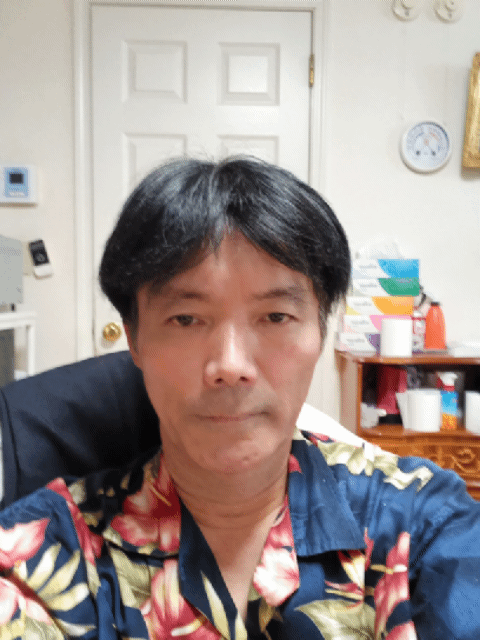oO☆゜.。+o●☆.。+oO☆.○。o∞○。○o'●oO☆゜.。+o●☆.。+oO☆.○。o∞○。○o'●
ブログを単語帳化します。
日本語→英語に…。
(1)私達アメリカ人の祖先の時代はヨーロッパ、アフリカ、アジア、中央アメリカから移民してきた他民族国家なんだよFumiaki。その点日本とは全く事情が異なるんだよ。背の高い人、低い人、皮唐の色や髪の形状もいろいろさ。
(2)そして皆、祖国の伝統を守りながら、同時にアメリカ人としての意識も持っているんだ。
(3)だから普段は自分の家の伝統や、民族の伝統を守って生活しているけど。一旦有事があれば、アメリカ人という連帯意識で一、致団結するんだよ。
(4)さあ、君の通う学校に着いたよ校長室へ行こう。フィル校長が待っているだろうから。
(5)学佼ではすべてが異なり、緊張するやらもの珍しく感じるやら。でも次第に学校生活にも慣れてきました。
(6)荒木氏は地元の新聞に写真と記事で紹介され町では知られるようになったのです。
(7)誰もが彼に気が付くと笑顔で挨拶をしてくれる「やぁFumiaki!」ってね。
(8)彼はこんな風に日本にいるクラスメイトに手紙を書きました。
(9)やぁ藤岡、そっちはどうだい?ようやく様子が聞けて良かったよ。
(10)学生服の君達や生徒会室での小さな打ち上げの写真とかレオン・ラッセルの「ソング・フォー・ユー」のテープを送ってくれてありがとう。
oO☆゜.。+o●☆.。+oO☆.○。o∞○。○o'●
(1)We Americans, at the time of our ancestors, emigrated from Europe, Africa, Asia, and Central America, so this country is a multi-racial nation, Fumiaki. For that matter, we are totally different from Japan. Tall people, short people, and coIors of skin or hair vary.
♪vary…ヴェアり
(2)And we all keep the tradition of our motherlands, and at the sametime we consider ourselves to be Americans.
(3)Each American family treasures their own family or ethnic traditions. But when some emergency happens, they all act in union, as Americans.
(4)Well, here we are at your school. It's right there. We've got to go to the principal's office. Mr. Phil is supposed to be waiting there for us.
(5)Everything was so different at school that he felt nervous and curious, but gradually he got used to it.
(6)After Mr.Araki was introduced in the locale paper with his picture and an article, he became known to people in town.
(7)Everyone recognized him and smiled at him with greeting, "Hi, Fumiaki!"
♪recognized…れクグナイズd
(8)He wrote a letter to his classmate back in Japan, which went like this.
(9)Hi, Fujioka, how are things going around there? It's so nice to hear from you finally.
(10)Thak you for sending me a picture of you and the other member of student body in school uniform, and also the photo of the little party in the student office room, and tape of the song "THE SONG FOR YOU" by Leon Russell.
ブログを単語帳化します。
日本語→英語に…。
(1)私達アメリカ人の祖先の時代はヨーロッパ、アフリカ、アジア、中央アメリカから移民してきた他民族国家なんだよFumiaki。その点日本とは全く事情が異なるんだよ。背の高い人、低い人、皮唐の色や髪の形状もいろいろさ。
(2)そして皆、祖国の伝統を守りながら、同時にアメリカ人としての意識も持っているんだ。
(3)だから普段は自分の家の伝統や、民族の伝統を守って生活しているけど。一旦有事があれば、アメリカ人という連帯意識で一、致団結するんだよ。
(4)さあ、君の通う学校に着いたよ校長室へ行こう。フィル校長が待っているだろうから。
(5)学佼ではすべてが異なり、緊張するやらもの珍しく感じるやら。でも次第に学校生活にも慣れてきました。
(6)荒木氏は地元の新聞に写真と記事で紹介され町では知られるようになったのです。
(7)誰もが彼に気が付くと笑顔で挨拶をしてくれる「やぁFumiaki!」ってね。
(8)彼はこんな風に日本にいるクラスメイトに手紙を書きました。
(9)やぁ藤岡、そっちはどうだい?ようやく様子が聞けて良かったよ。
(10)学生服の君達や生徒会室での小さな打ち上げの写真とかレオン・ラッセルの「ソング・フォー・ユー」のテープを送ってくれてありがとう。
oO☆゜.。+o●☆.。+oO☆.○。o∞○。○o'●
(1)We Americans, at the time of our ancestors, emigrated from Europe, Africa, Asia, and Central America, so this country is a multi-racial nation, Fumiaki. For that matter, we are totally different from Japan. Tall people, short people, and coIors of skin or hair vary.
♪vary…ヴェアり
(2)And we all keep the tradition of our motherlands, and at the sametime we consider ourselves to be Americans.
(3)Each American family treasures their own family or ethnic traditions. But when some emergency happens, they all act in union, as Americans.
(4)Well, here we are at your school. It's right there. We've got to go to the principal's office. Mr. Phil is supposed to be waiting there for us.
(5)Everything was so different at school that he felt nervous and curious, but gradually he got used to it.
(6)After Mr.Araki was introduced in the locale paper with his picture and an article, he became known to people in town.
(7)Everyone recognized him and smiled at him with greeting, "Hi, Fumiaki!"
♪recognized…れクグナイズd
(8)He wrote a letter to his classmate back in Japan, which went like this.
(9)Hi, Fujioka, how are things going around there? It's so nice to hear from you finally.
(10)Thak you for sending me a picture of you and the other member of student body in school uniform, and also the photo of the little party in the student office room, and tape of the song "THE SONG FOR YOU" by Leon Russell.
















